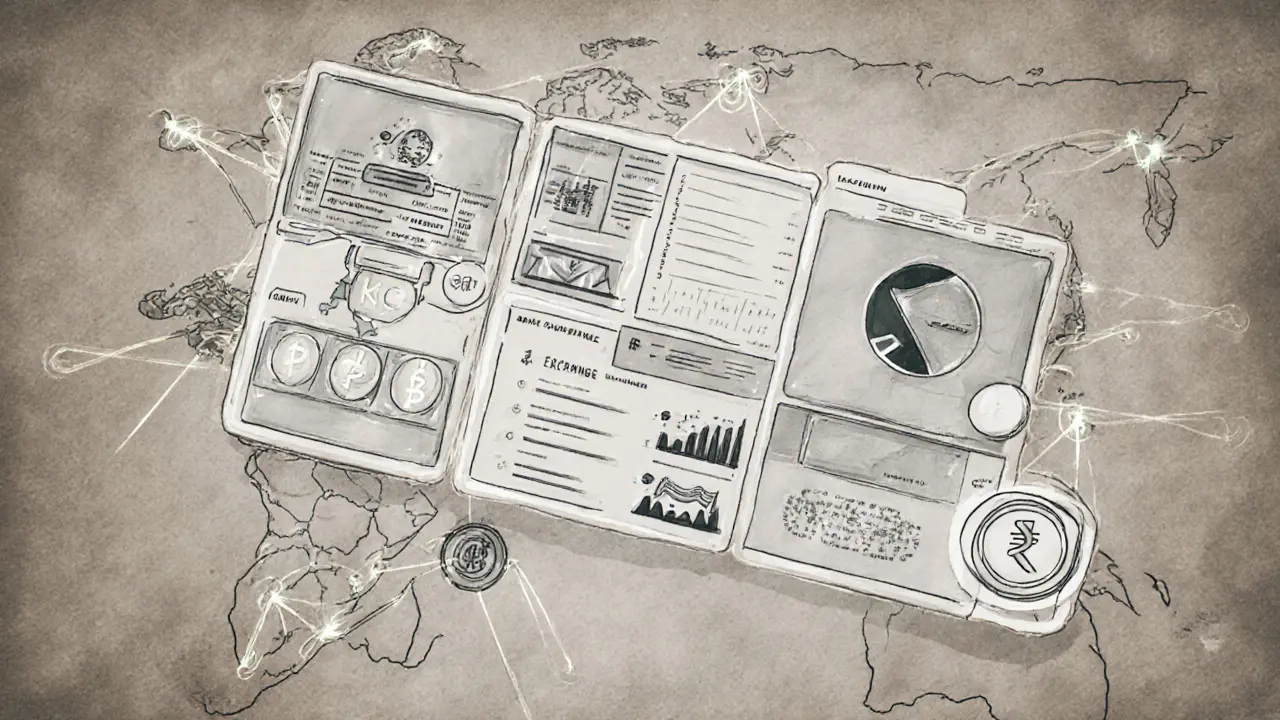Crypto Licensing in Pakistan: Rules, Risks, and What’s Really Allowed
When it comes to crypto licensing in Pakistan, the official stance from the State Bank of Pakistan bans financial institutions from handling cryptocurrency transactions. Also known as crypto regulation Pakistan, this rule isn’t just a suggestion—it’s enforced with fines and account freezes. But that doesn’t mean crypto disappeared. It just went underground, where people use P2P platforms, foreign exchanges, and digital wallets to trade Bitcoin, USDT, and other tokens.
What’s confusing is that while banks can’t touch crypto, individuals aren’t explicitly banned from owning or trading it. This gray zone is why so many Pakistanis rely on P2P Bitcoin Afghanistan, a model that’s also thriving in Pakistan, where traders connect directly without banks. It’s the same logic that keeps underground crypto markets alive in places like Afghanistan and China—when formal channels shut down, people build their own. The crypto compliance, the set of steps to follow legal rules. Also known as crypto regulation compliance, it’s something no one talks about openly in Pakistan, but it’s the quiet reality behind every trade. You’re not breaking the law if you don’t use a Pakistani bank—but if you’re running a business that accepts crypto, you’re walking a tightrope.
The real issue isn’t just legality—it’s trust. Most Pakistani traders avoid local exchanges because they fear they’ll be shut down or hacked. That’s why platforms like Mandala Exchange, a multi-chain platform with no local banking ties. Also known as crypto exchange fees, it’s a popular choice among those who want to trade without drawing attention. Same goes for XBTS crypto exchange, a decentralized platform that doesn’t require KYC. Also known as decentralized exchange, it lets users bypass local restrictions entirely. These aren’t just tools—they’re lifelines for people who need to move value without government oversight.
There’s no official crypto licensing process in Pakistan because the government hasn’t created one. But that doesn’t mean regulation won’t come. Thailand and Canada have already laid out clear rules for exchanges—why wouldn’t Pakistan? Right now, the market is operating in a vacuum. Traders are using guides for OFAC cryptocurrency sanctions, to avoid accidentally dealing with blacklisted addresses. Also known as digital asset sanctions, these global rules matter even if Pakistan ignores them. One wrong transaction, and your wallet could be frozen by international systems, no matter where you live.
What you won’t find in any official document is how much crypto is actually moving. Estimates suggest billions in crypto flow through Pakistan annually—mostly via P2P, mostly in USDT. The government sees it as a threat. Traders see it as survival. And while the State Bank keeps warning banks to cut ties, the real battle is happening in WhatsApp groups, Telegram channels, and local bazaars where cash-for-Bitcoin deals happen over tea. No license. No paperwork. Just trust and speed.
If you’re in Pakistan and thinking about crypto, you’re not alone. You’re part of a quiet, growing network of people who’ve figured out how to trade without permission. The posts below cover exactly how that works—from the exchanges people actually use, to the risks they face, to the tools that keep them safe. No theory. No politics. Just what’s happening on the ground, right now.
Pakistan Virtual Assets Regulatory Authority (PVARA) for crypto oversight: What you need to know in 2025
Pakistan's new PVARA authority now regulates all crypto activities. Learn how it works, who needs a license, and what this means for users and businesses in 2025.
VIEW MORE
